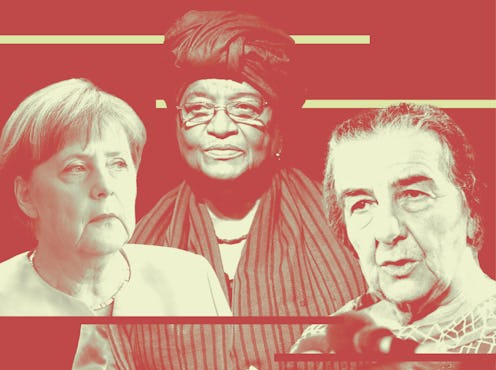
On Tuesday evening, Hillary Clinton finally declared that she become the Democratic presumptive nominee, making history — and making her the first woman to ever hold the leadership position. In November, she has a chance to set another record by becoming the first female president of the United States. Political affiliations aside, these monumental moments show that history is continuing to be made, even today. And American women aren't the only ones experiencing the incredible expansion of opportunity.
More than five decades ago — when the concept of electing a female president in America was unthinkable — Sirimavo Bandaranaike became the world's first female prime minister when she was elected in Sri Lanka in 1960. From that point forward, the trend continued and defied regional borders.
Indira Gandhi became India's first female prime minister in 1966. Nine years later in the Central African Republic, Elisabeth Domitien, a leader in the Movement for the Social Evolution of Black Africa political party and active participant in the nation's independence movement, was appointed prime minister, the first female PM in Sub-Saharan Africa. Twenty years after that, Claudette Werleigh won Haiti's elections to become the country's prime minister and went on to become an international peace worker. Since then, over 20 nations have opened up their top leadership positions to women, some within just the past few years.
It may have taken the U.S. an unusually long while to catch up, but it's making progress. According to a CNN/ORC poll conducted in March, 80 percent of American voters feel like it's time for a woman to move into the White House's top spot. In 2012, Michelle Bachelet, then the head of UN Women and currently the president of Chile, spoke with The New York Times about the challenges women around the world faced; today, the conversation has become especially relevant in the U.S.:
For me, a better democracy is a democracy where women do not only have the right to vote and to elect but to be elected.
Gender is hopefully on its way to becoming a non-issue in the political field, and we can't forget that there's still a long way to go. Even so, the world should be proud of what it's accomplished thus far. Women leaders from amazingly various backgrounds have been elected to executive offices in the past 50 years. Let that knowledge help bring your hope to life.
Images: Caroline Wurtzel/Bustle